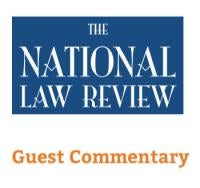In spite of national and international criticism, the Trump Administration continues to use travel bans as part of its strategy to pursue American foreign policy objectives. On May 29th, President Trump signed an executive order on the Suspension of Entry as Nonimmigrants of Certain Students and Researchers.
This order bans Chinese graduate students and researchers who have ties to an entity that “implements or supports” China’s “military-civil fusion strategy.” It also calls on the State Department to consider if Chinese graduate students currently in the U.S. should have their visas revoked. The goal of this travel ban is to prevent China from acquiring sensitive American technologies and intellectual property that could modernize and enhance the Chinese military.
This is just the latest in a series of travel bans that the Administration has used to pursue foreign policy interests. In Syria, the U.S. has a tenuous relationship with the Assad regime and the security infrastructure was ravaged by years of civil war and radical insurgents. There is no mechanism for meaningful security and information sharing between the two nations. The Administration has a full travel ban on Syrians to guard America’s security.
In Iran, the U.S. relationship has been tense for over four decades. The Trump Administration withdrew from the Joint Comprehensive Plan of Action and 1955 amity treaty. However, Trump’s foreign policy objective is to make a new nuclear deal with Iran. Trump’s travel ban in Iran allows Iranian students to receive visas as a path for dialogue.
Nigeria and America are allies and major trade partners. However countering the Islamic militant group Boko Haram, which abducted 300 girls in 2014, is also part of America’s foreign policy. The travel ban in Nigeria is limited to only immigrant visas. The State Department issued over 99,000 visas in Nigeria in 2019. Of these only 6,746, or 7%, were immigrant visas. Banning 7% of Nigerians sends a message that the Nigerian government must to more to counter terrorism. But it stops short of banning all travelers from a main trade partner.
Some Chinese graduate students are now part of a growing list of banned travelers to the United States. Travel bans are controversial, but our government has the obligation to use all legal tactics at its disposal to pursue its foreign policy goals and to secure its citizens. Travel bans are diplomatic tools, not political weapons.
The opinions and views stated herein are the sole opinions of the author and do not reflect the views or opinions of the National Law Review or any of its affiliates.




 />i
/>i
